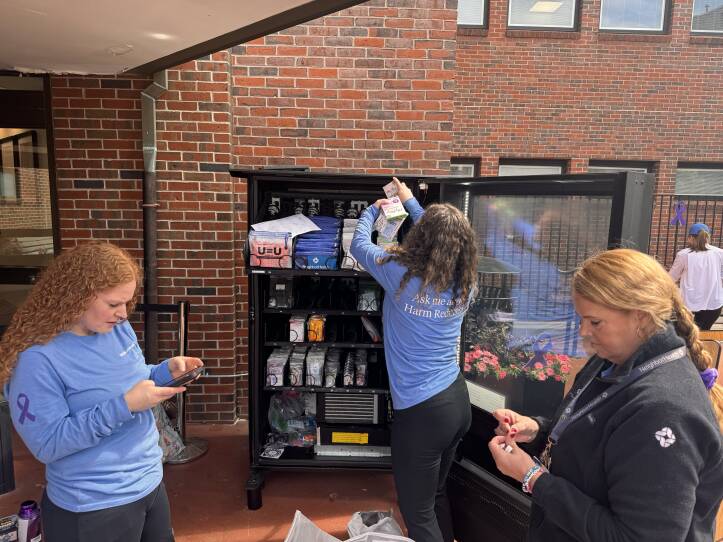Boston unveiled its first 24-hour public health vending machine Wednesday, stocked with items such as Narcan, fentanyl test strips, safe injection kits, condoms, socks, blankets and more.
NeighborHealth and the Boston Public Health Commission partnered to stock the machine, and all products will be free of charge.
“Substance use itself is a community issue, and if it’s not being addressed at a community level, then we’re missing a really big component of it. And this machine itself is addressing so many different areas,” said Desiree Millet, director of recovery services programs at NeighborHealth.
The machine stands outside NeighborHealth’s East Boston emergency department location. NeighborHealth will maintain and stock the machine using grant funding from BPHC’s Boston Overdose Data to Action program.
The health vending machine is the first of its kind in Boston to offer products around the clock and have outdoor access.
September is National Recovery Month. Millet said that the machine allows those in the community to receive help while maintaining their dignity.
“It’s hard to go to your doctor and say, ‘Hey, I need a pair of socks. I don’t have any shampoo.’ You can just come here and get it and walk away. And I think that’s what’s really important about this machine,” Millet said.

East Boston has few recovery resources, outside of the work that NeighborHealth does, Millet said. Being separated from most of Boston, the location of the machine made sense.
Jamie Hazard, interim president and CEO of NeighborHealth, agreed that East Boston was the perfect location for the vending machine.
“Every supply we dispense is a chance to prevent death, reduce disease and build trust within communities that have long been excluded from traditional care,” Hazard said.
Adrian Madaro, state representative for East Boston, said that the neighborhood is no stranger to the challenges of substance use. And while overdoses in Boston have declined significantly, there’s still a place for this work, he said.
“When I look at this vending machine … this is a transformative investment for our community,” Madaro said. “This could very well be the difference between a life saved or not.”
The machine provides product descriptions in multiple languages. There is a four item limit per transaction. NeighborHealth and BPHC will collect data from the vending machine to improve and tailor services to the needs of the community over time.
“Public health vending machines are an innovative way to bring life-saving harm reduction tools directly to those who need them most,” said Dr. Bisola Ojikutu, commissioner of public health for the City of Boston, in a written statement.





